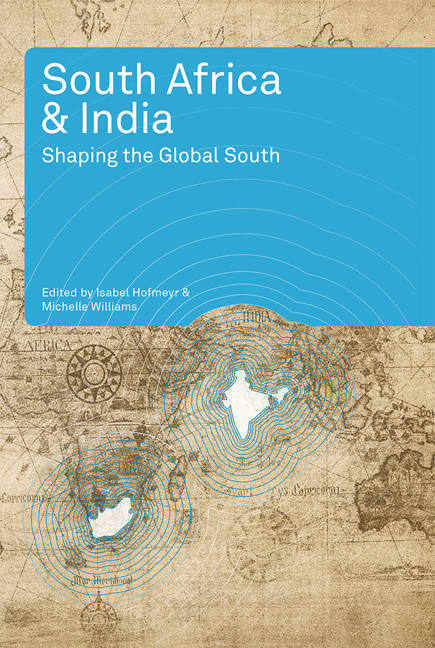Cricket Ethics: Reflections on a South African-Indian Politics of Virtue
from Conclusion
Published online by Cambridge University Press: 21 April 2018
Summary
A post-colonial encounter on ethical grounds
A reader of the foregoing chapters in this book might be excused for wondering why they ought to be considered part of a common scholarly undertaking. It is not easy to draw India and South Africa into the same frame of inquiry, nor, on the face of it, are there obvious and compelling reasons for doing so. ‘Comparison’ as a project might seem misconceived or misplaced. Contemporary India has a population of over a billion people. If one were to take the entire territory once encompassed by pre-partition India as the relevant unit, one would be obliged to add to this already unimaginably large number the further three hundred million inhabitants of Pakistan and Bangladesh. By contrast, South Africans number roughly fifty million. If South Africa were one of India's 30 states, it would rank only tenth in population, behind Karnataka and Gujarat. Contrasts intuitively outweigh similarities in vast proportion: from religious practices to household forms, musical styles to staple foodstuffs, it would seem that one might as well compare South Africa with Ecuador or India with Sweden.
Nor do the ‘connections’ seem, at first glance, to be remarkably dense or significant. At just over a million, the diasporic presence of people of Indian descent in South Africa is certainly substantial, but it is no greater than that in the United Kingdom or United States, and far less in absolute number and proportion to the overall population than in Saudi Arabia. In any case, these latter countries count ‘Indians’ among their immigrants as a result of relatively recent post-colonial migrations that have grown in intensity toward the end of the 20th century. By contrast, the major population flows from India to South Africa are much further removed in geopolitical time – an outgrowth by and large of the 19th-century British imperial labour and trading economy that has long since vanished from any living person's memory. In the imagination of most people who are designated as ‘Indians’ in the vernacular sociology of South Africans, India as such figures as a distant Bollywood fantasy rather than as a desired destination or a daily preoccupation.
- Type
- Chapter
- Information
- South Africa and IndiaShaping the Global South, pp. 244 - 268Publisher: Wits University PressPrint publication year: 2011

